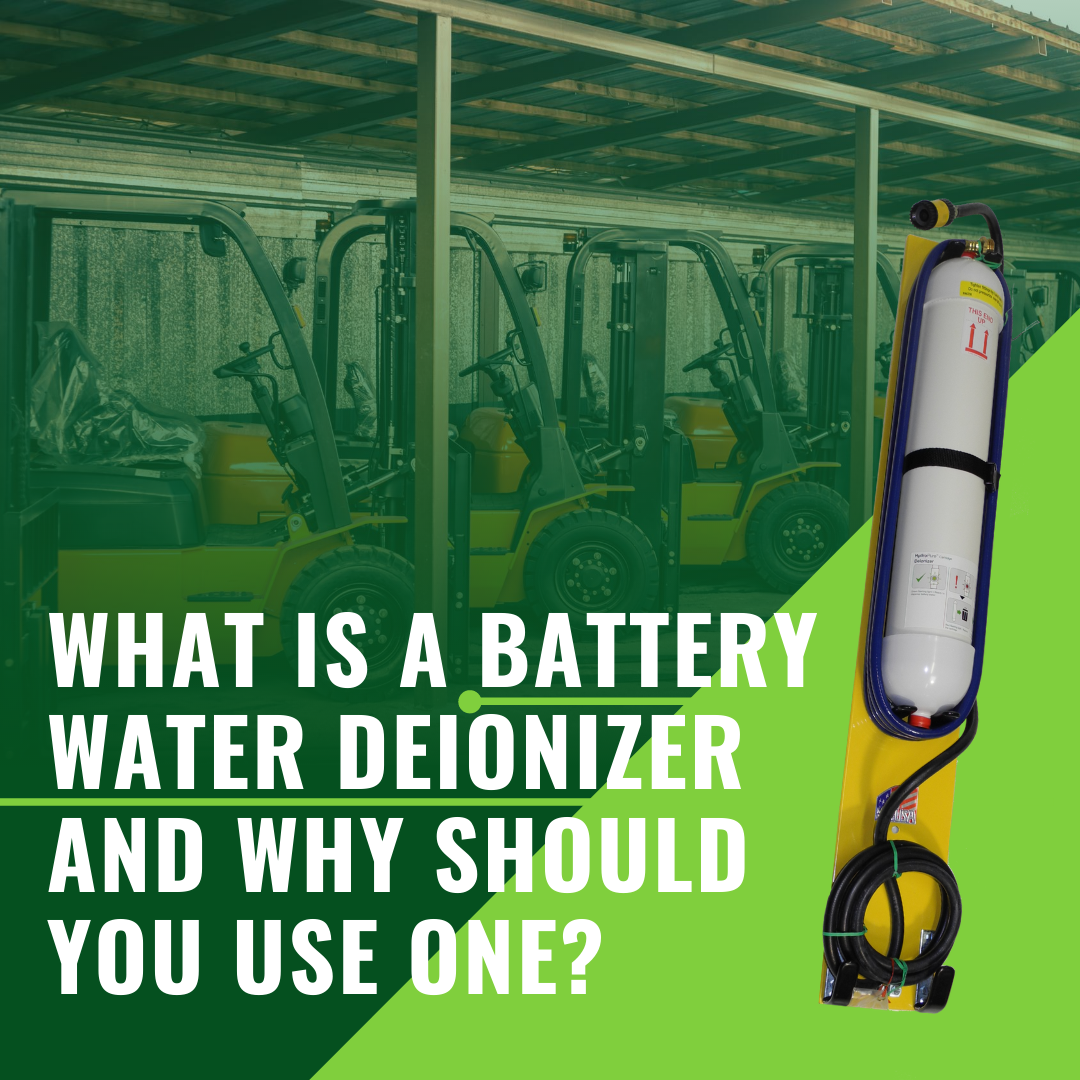We use cookies to make your experience better. To comply with the new e-Privacy directive, we need to ask for your consent to set the cookies. Learn more.
What Is a Battery Water Deionizer and Why Should You Use One?
Lift truck batteries require regular watering, and in order to keep them operating for as long as possible (and to avoid thousands of dollars in new battery purchases), workers should only use water that is free from pollutants and minerals.

Tap water affects battery performance through a fairly straightforward electrochemical process. Ideally, the water used in battery washing is neutral — it doesn’t hold a charge — but impure water has a positive or negative charge as a result of its pollutants. While the effects of a poor water supply aren’t immediately noticeable, pollutants can gradually build up, preventing the battery from operating as expected. Eventually, that can cause issues including:
- Increased self-discharge rates and voltage leaks during operation
- Weakened battery casings due to corrosion
- A significantly reduced operating life
- Electrolyte hazards for staff who handle batteries
To solve this problem, many facilities pay for bottled distilled water to ensure safe battery watering. While that’s certainly one way to address the issue, battery water deionizers are a far more cost-effective solution. These devices essentially pay for themselves over time by protecting batteries and eliminating the need for costly bottled water deliveries.
But what is a battery water deionizer, exactly, and does it provide the same water quality as bottled water? Most importantly: Is it a realistic option for smaller battery rooms?
How Battery Water Deionizers Work
One common misconception is that bottled distilled water is safer than tap water treated with a deionizer. Modern deionizers use a reliable process that outputs pure water perfectly suitable for use in battery watering applications.
For instance, the BHS Water Deionizing System (WDS-1) hooks directly into the tap, routing water through cationic and anionic resins. Cationic resins contain positively charged ions, while anionics contain negatively charged ions; together, the resins purify water by removing the dissolved impurities. The process is electrostatic, dependable, and simple.
The WDS-1 uses cartridges for purification. Each cartridge produces an average of 600 gallons of deionized water, though the exact amount of water produced will vary depending on the quality of the source (a battery-operated purity light informs staff when the system needs a new filter). The system can handle pressure of up to 80 psi and can be equipped with a Water Gun (WG-X) for direct use in battery watering applications.
Most importantly, it’s an affordable alternative to bottled distilled water. Industrial drums of distilled water often cost upwards of $0.27 per gallon, not including drum deposits and delivery fees. On average, tap water costs $.004 per gallon in the United States, and many industrial businesses pay much less. Deionizers also eliminate the need for water drum storage, potentially freeing up significant floor space.
Even including the costs of occasional filter replacement, a deionizing system eventually recoups its costs. That’s true for facilities of all sizes, though larger facilities will see a quicker return on investment. Battery watering is an essential task for any operation that uses lift trucks on a regular basis, and distilled water is critically important — there’s no reason to outsource the task to water delivery services when a single piece of equipment can get the job done.
